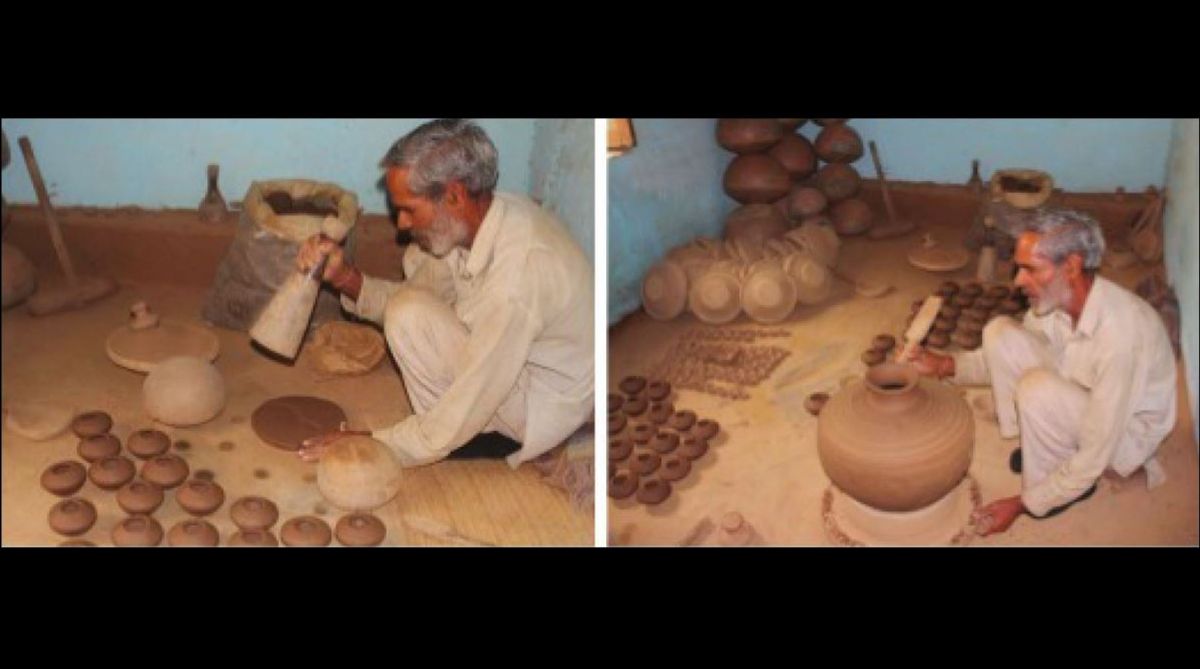J&K CM Omar Abdullah lays stress on Himachal Pradesh-type laws to protect agricultural land
The Chief Minister noted that Himachal Pradesh has adopted a strict policy in this regard and stressed the adoption of a similar policy in J&K.
A village in solan is working hard to preserve a traditional pottery art.

(Photo: SNS)
In this era of modern technology, traditional products are on the verge of extinction. Paudhana village in Solan district of Himachal Pradesh, however, is a place where a few people are preserving a traditional pottery art.
They make earthenware of different sizes such as flower pots, diyas and other vessels but people come here especially to purchase ‘matki’ or ‘ghada’. The pots are purely handmade, without any mechanical help or technology. They make it with the help of sancha (template), ‘thapi’, knife and small cloth strap and to ensure the strength of the clay they bake small clay balls in an oven. If it breaks then they don’t use it for pots.
Advertisement
In the process of making pitchers, they first make the lower part from sancha, then the second part and attach them and finish it by making the top part (beel) of ‘matki’. They paste black soil on pots, dry them in sunlight for two days and colour them. In the final stage, pots are fired for which they use the bark of pine tree.
Advertisement
Beli Ram, 62, a potter from Paudhana village, Solan, said, “It is our family tradition. I learnt it from my father and grandfather. Mostly people buy matkis for storing water, milk and milk products. ‘Matki’ is famous because it’s handmade. We don’t use the wheel for making pots. We prepare other vessels and Diyas also, but on order basis only.”
With the passage of time the demand for clay pots is decreasing as people like to buy only small sized pots.
The people in this village are absorbed in their traditional and have not taken advantage of any promotional schemes or subsidies provided by the government.
Amar Singh, shopkeeper from Waknaghat, Solan, said, “Water remains fresh in Matkis. In the past time Maat (very big sized clay pots) was also prepared by them but now few people are making those”.
“We can buy pots from anywhere. But I like to buy it from here because these ‘matkis’ are unique and pots are solid also. Health wise also ‘matki’ water is beneficial,” said Madan Narwal, a resident of Sangti.
One of the oldest inventions of human beings, the handmade matkis involve a lot of hard work and take a long time. They give better results than the mechanised ones as far as retaining the quality of water for a longer period.
“The art is unique, but the next generation has no interest in learning or preserving it. More so, the villagers now make them either on order or near the fairs and festivals, where they can display them as diminishing art. There are a few people who value this eco-friendly product now,” said local residents.
Advertisement